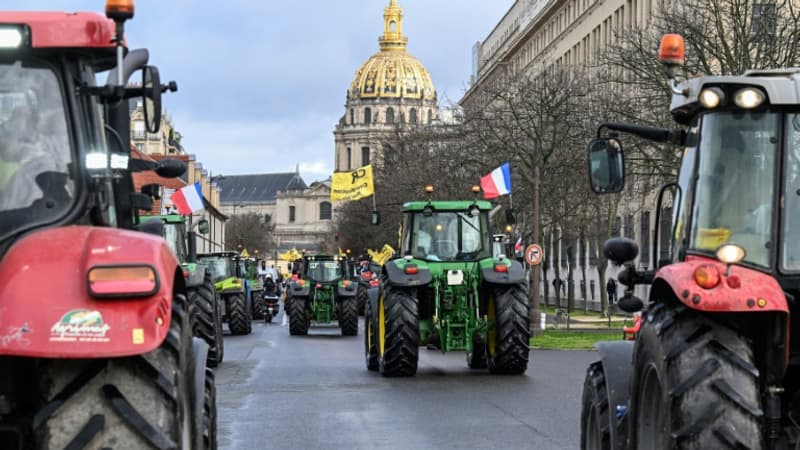We must act quickly to respond to the anger of farmers, which does not diminish in several countries, such as France, where the Agricultural Show opened on Saturday morning in an electrifying atmosphere, or Poland, where an important border of step and with the European elections fast approaching.
To “relieve pressure” and “help our farmers guarantee food security”, the president of the European Commission, Ursula Von der Leyen, has put on the table a series of proposals that will be debated this Monday morning in Brussels by the Ministers of Agriculture of the Twenty-Seven.
Administrative simplifications
The European Commission first proposes to relax the rules regarding the use of agricultural land by farmers. In order to obtain aid from the CAP, they must now guarantee that the area occupied by “permanent” grasslands remains within 5% of the 2018 level. But the situation has become complicated, since a certain number of livestock farmers have converted to other productions, such as cereals, due to the dairy crisis and the fall in meat prices. This rule could be relaxed in mid-March.
Brussels also proposes relaxing set-aside obligations. Until now, farmers had to leave 4% of their farms fallow or non-productive land. The Commission has granted a one-year derogation and proposes authorizing the planting of nitrogen-fixing crops on these areas, such as legumes (lentils, beans, etc.) or crops that allow rotation (maize, sunflowers, etc.). .
He also heard the request for administrative simplification. Thus, it proposes reducing by 50% the controls that the administrations of each country currently carry out directly on farms, replacing them with “an automated analysis of images from the European Copernicus satellite program.”
Brussels is also studying, in the medium term, exempting farms of less than ten hectares from controls linked to compliance with environmental conditions. According to the Commission, “this would considerably simplify the work of small farmers, who represent 65% of CAP beneficiaries, without reducing environmental ambitions, since these small farms only cover 9.6% of the areas covered. benefit from European aid”.
Protect farmers in trade negotiations
This package of proposals, which will be examined this Monday morning by the Agriculture Ministers of the Twenty-seven, also includes a measure to prevent farmers who are victims of climate disasters from being penalized in view of the limitations imposed on them. the lid. Brussels undertakes to better define “cases of force majeure and exceptional circumstances”, such as episodes of drought or major floods.
Like what is done at the French level, with the desire to strengthen the Egalim law, the European Union wants to improve the position of farmers in the agri-food chain, together with manufacturers and distributors. It proposes to “protect farmers from unfair trade practices.”
To also respond to the concerns of farmers, who denounce the massive arrival of Ukrainian products at the expense of their own production, it proposes safeguard mechanisms in case of “major disturbances” on the market. For poultry, eggs and sugar, it plans to reimpose customs duties if imports exceed average imported volumes in 2022-2023.
Source: BFM TV


